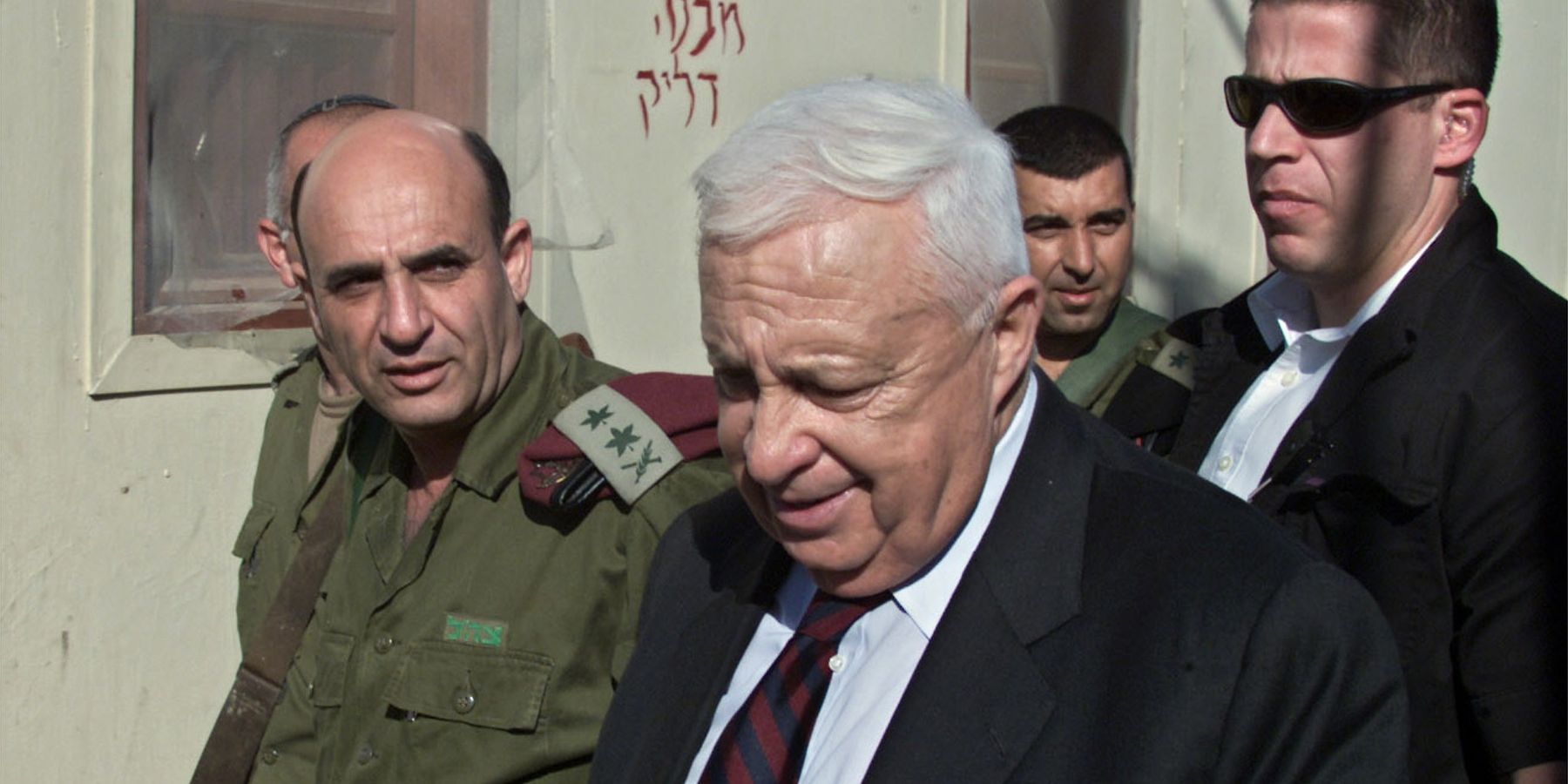Ariel Sharon, more than any other Israeli or Palestinian leader, has defined the terms and the context of the war in the Gaza Strip.
There are two decision points in this narrative that exercise a decisive influence on the current situation.
The first is the IDF’s reoccupation of the entire West Bank beginning in April 2002 –Operation Defensive Shield. This military operation effectively ended the bargain sealed at Oslo, eliminating Israel’s interest in empowering the PLO in the West Bank and indeed in the Gaza Strip as well. Like the current conflict, Defensive Shield was a military operation with wide-ranging political and security ramifications.
The second is Sharon’s decision to evacuate all settlers and soldiers from the Gaza Strip in September 2005. This surprising policy, was taken by an aging leader anxious to establish principles that would survive his passing. Redeployment marked Sharon’s recognition that settlements and occupation by the IDF—at least in Gaza -- were not sufficient guarantors of Israel’s security. By removing settlers and the IDF from Gaza proper, Sharon hoped to force Egypt to police Gaza and to make Gaza into a foreign country for which Israel’s responsibilities as an occupying power – responsibilities that constrained its freedom of military action against potential security threats– no longer applied.
On this important point however, Sharon’s intentions were partially thwarted. Egypt continues to resist becoming Gaza’s jailer. And Israel’s foreign ministry ruled that because Israel, after its redeployment, remained in “effective control” of Gaza, Israel could not disavow its responsibilities as an occupying power.
Nothing that has happened since Israel’s redeployment in 2005 — including the electoral victory of Hamas in elections or the movement’s subsequent assumption of power in Gaza, or indeed the current war itself, contradicts this view. The current war offers considerable evidence that Israel has indeed been able to conduct policy in Gaza according to the rules of war — a policy supported as self-evident by Washington and others.
The new reality Israel is creating in Gaza is the product of blood and fire rather than negotiation or diplomacy, certainly during the critical period when the territorial outlines of the future are being established. Israel will not easily permit the intrusion of considerations other than those it deems vital in the conduct of its operations. The war’s first month offers ample evidence attesting to its success in this regard.
Just as the Second Intifada signaled the end of Oslo, the model for Gaza imposed by Sharon after 2005 has failed. It will not be resuscitated. In tomorrow’s Gaza, the IDF sees no value in empowering the PLO, or indeed any Palestinian actor, to exercise anything but the most nominal governing and security powers — under an ever-present Israeli eye. From now on, Israel will go back to the future — attempting to reinvigorate a model used in the first decade of occupation in which Israel exercises exclusive security control while empowering strictly local authorities to conduct day to day life.
The international community finds itself woefully unprepared and indeed uninterested in confronting the faits accompli that have always been the hallmark of Israel’s policies in the West Bank and Gaza Strip. A particular responsibility falls upon the US in this regard. Yet the policy bromides offered by the Biden administration reflect this ambivalence.
Today US policy has given Israel the space to wage war against Gaza. Washington offers clichés about Gaza’s future and options for the day after that have little relationship to the facts that Israel is creating on the ground. For Benjamin Netanyahu, there is no win-win solution, but rather only one dictated by Israel, the peace of the victor.
This article has been republished with permission from Geoffrey Aronson.
















